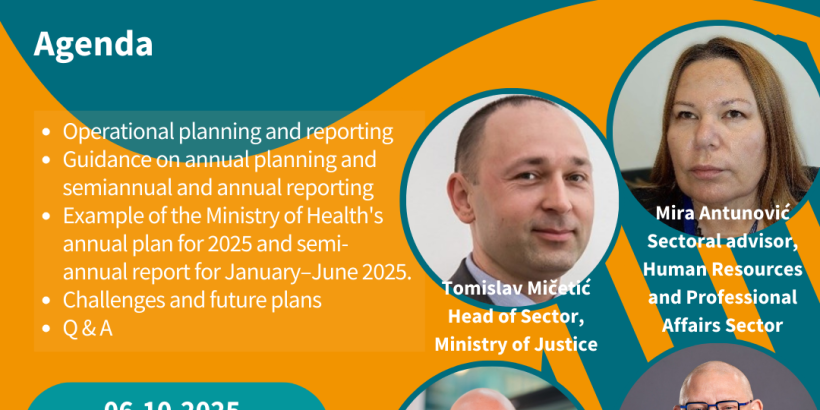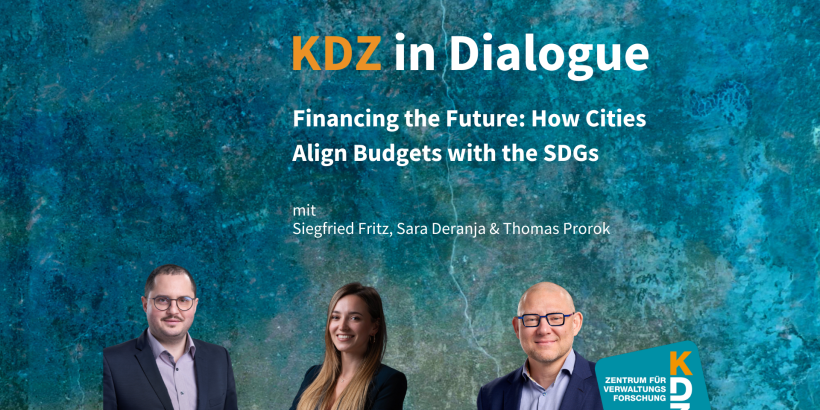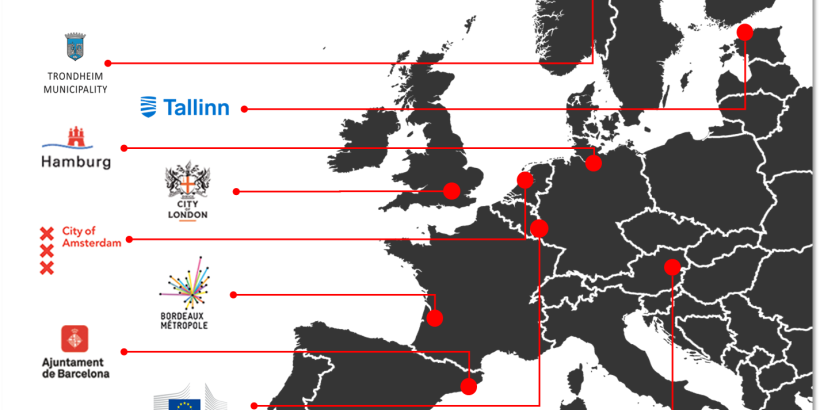



As part of the "European Week of Regions and Cities 2023," the BACID program by KDZ and the Austrian Association of Cities presented the digital "Elderly Care System" for the North Macedonian city of Delchevo. This project highlights the central role that local governments play in providing social services to the population, particularly in the care of the elderly. The goal of the digital "Elderly Care System" is to offer better care for older people, especially those in rural areas or with limited mobility, by remotely monitoring their vital health parameters.
Municipality of Delchevo as many other municipalities in the Western Balkan is struggling with number of health care providers, and unequal coverage of health care for the population in the rural area, mainly elderly. In addition, the municipality is dispersed and has more than 20 populated places with the doctor's offices only in the city of Delchevo. Doctors are overloaded with work, with limited equipment at their disposal and elderly patients located in rural area do not have the opportunity for regular medical check-ups due to limited travel options or limited mobility.
This innovative system allows individuals to record important health data, such as blood pressure, heart rate, body temperature, blood oxygen saturation at home using user-friendly devices. This data is transmitted in real-time via a secure broadband connection to a sophisticated central monitoring station, where medical personnel monitor the conditions, analyze the information and make accurate diagnoses. In the case of deviations or irregularities, alarm is activated and immediate action can be taken without requiring the individuals to personally visit a clinic.
This innovative solution aims not only to improve medical care but also to reduce the social isolation of older people. It enhances the feeling of care , as people receive continuous professional support. In addition to improving the quality of life for the elderly, the project promotes social cohesion within the community, reduce isolation and promote inclusion by focusing on remote areas and people often excluded from regular healthcare. This project is also contributing to bridging the urban-rural divide with digital tools to help close the gap in care between urban and rural areas.
Key stakeholders in the process include:
- The Municipality of Delchevo that invites all stakeholders, coordinates the program, manages the process to provide equal opportunities and even distribution of services, and oversees service delivery.
- Social Service Providers of the municipality, local licensed NGOs to deliver and manage the health monitoring devices, providing therapy and medications as a follow-up care if needed.
- Doctors and medical staff to analyze and review the health data, make diagnoses, and recommend treatments based on the collected data.
- End Users: Elderly citizens benefit from this personalized monitoring, reducing their need for in-person visits to doctors.
Training for all involved parties, from service providers to medical staff, ensures smooth operation and sustainable outcomes. Equipment providers support the project with technical training, ensuring effective device use and maintenance.
It was estimated that during its first year, the project will serve 50 to 200 elderly citizens, improving their quality of life and providing critical care. However, implementation results exceeded expectations: within just two months, the first doctor using the system successfully reached over 70 patients.
This pilot is part of the BACID 3 initiative, designed to create digital solutions for local communities in the Western Balkans and Moldova. Delchevo’s success showcases the potential for digital transformation in local governance and social services. By meeting healthcare needs through digital tools, Delchevo offers a model for other municipalities.
In another digital project, BACID has implemented a smart parking management system in the Serbian city of Sombor with a component for citizens to be informed about the Air Quality in the city. This smart digital project provides public information that can inspire citizens to advocate for policy changes that promote a healthier environment and support sustainable local mobility with a reduced carbon footprint.
Both digital projects promote the European integration of the Western Balkans, improve municipal services, and create direct added value for citizens. They demonstrate that effective administration begins at the local level and underscore the importance of municipalities in ensuring a high quality of life. For this reason, the projects were presented during the "European Week of Regions and Cities," which for the first time was held in conjunction with Local Government Day within the European Administrative Space (ComPAct).



